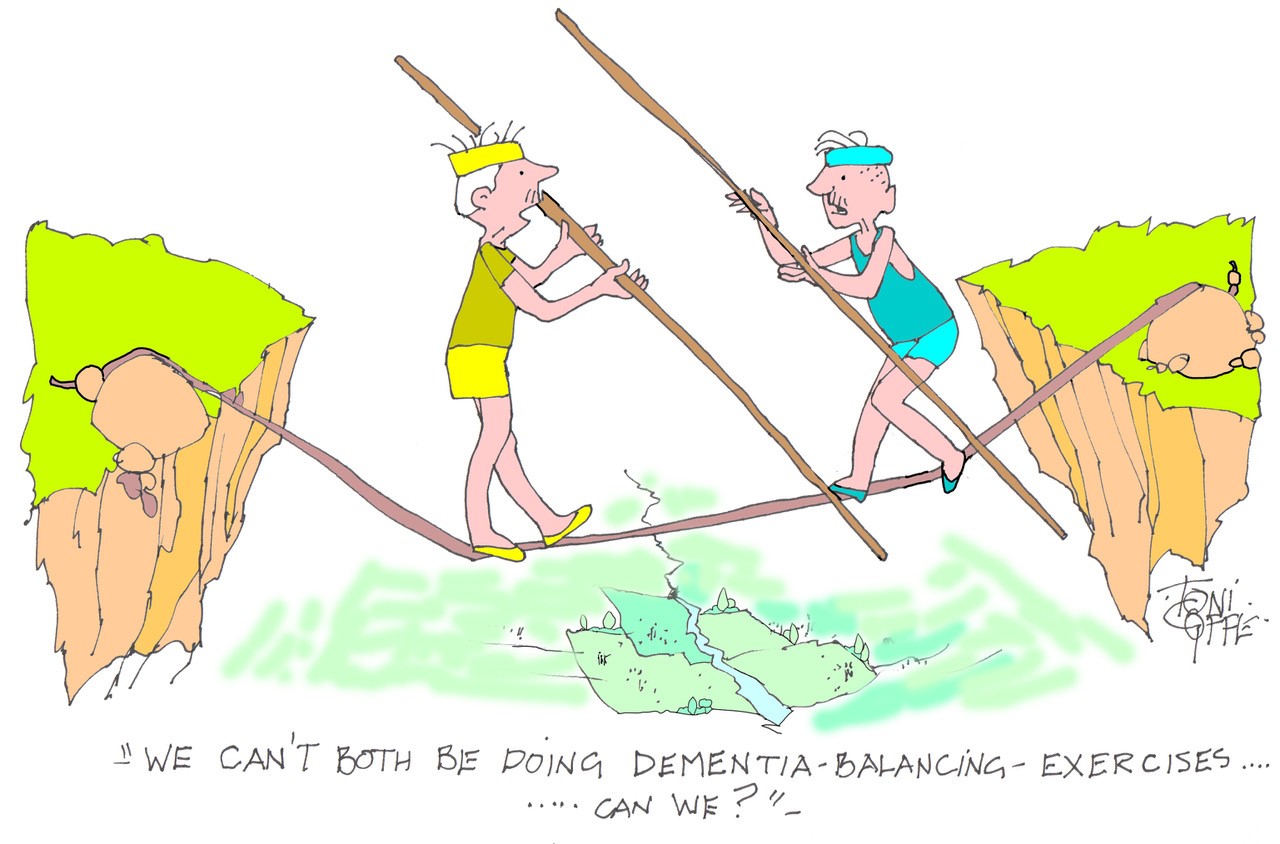Dementia Part 2
Last week I told you about some of the research indicating that regular physical activity can protect against dementia. Today a bit more about that protection
What exercise?
Which exercise regime is most beneficial? The short answer seems to be anything. Even gentle exercise for 15 minutes three times a week has been found to reduce the risk of dementia by about one third. Gardening too has been shown to slow the rate of progression of cognitive decline in the elderly – as well as reducing depression, loneliness, anxiety and stress.
With more vigorous exercise, walking seems to be more effective in combating dementia than cycling, particularly in the countryside – perhaps related to less exposure to pollution.
The role of the hippocampus
The understanding of brain function is developing rapidly, but is still at a very early stage. Clinicians and medical scientists are beginning to explore the possible ways in which exercise preserves normal cognitive function. One finding has related to an area at the base of the brain called the hippocampus. This region of the brain is responsible for memory and spatial awareness and it is one of the first regions to show loss of tissue in Alzheimer’s disease. Regular exercise in older subjects is associated with slowing of the loss of substance within the hippocampus. In one large randomised trial in older people, one year of aerobic exercise was associated with significantly larger hippocampal volumes and better spatial memory.
Studies of groups of people at one point in time have also found significantly larger hippocampal or grey-matter volumes among physically fit seniors compared with unfit people of the same age. The earlier the intervention the better. Poor fitness at an early age correlates with brain volume decades later. Even at the age of 50 those who exercise regularly perform better than non-exercisers in tests of memory, attention, reasoning and learning. More support for the effectiveness of exercise is provided by the relationship between cardiorespiratory fitness and hippocampal volume. Fitter individuals tend to have greater hippocampus volumes.
The ways in which physical activity may affect brain function are extremely complex and little understood. One promising area of research is the effect of exercise on “neuroplasticity” which is the ability of the brain to increase activity and neural connections. The harder the exercise, the greater the effect. Brain-cognitive networks, studied with functional magnetic-resonance imaging, display improved connectivity after 6–12 months of exercise.
Vascular dementia
Since vascular dementia is caused by disease of the small blood vessels supplying the brain it is to be expected that the risk of vascular dementia should be reduced by measures which reduce the prevalence of atheroma – disease of the arteries. These risk factors include high blood pressure, obesity (particularly abdominal obesity), diabetes, abnormal blood lipids etc. Guess what – these are all aggravated by lack of exercise!
 You can order a copy of my latest book here! This is directly through me for £12.50 and includes P&P.
You can order a copy of my latest book here! This is directly through me for £12.50 and includes P&P.
Alternatively, you can get in from Amazon for £14.76. The ebook version costs £4.49 but is free to KindleUnlimited members!
From Alton Waterstones for £14.99
From Alton Cardiac Rehab for £12.00 which includes a donation to the Charity 💕
Subscribe to the blog
Categories
- Accelerometer
- Alzheimer's disease
- Blood pressure
- BMI
- Cancer
- Complications
- Coronary disease
- Cycling
- Dementia
- Diabetes
- Events
- Evidence
- Exercise promotion
- Frailty
- Healthspan
- Hearty News
- Hypertension
- Ill effects
- Infections
- Lifespan
- Lipids
- Lung disease
- Mental health
- Mental health
- Muscles
- Obesity
- Osteoporosis
- Oxygen uptake
- Parkinson's Disease
- Physical activity
- Physical fitness
- Running
- Sedentary behaviour
- Strength training
- Stroke
- Uncategorized
- Walking



This is fascinating Hugh and something I will share with my family and friends and patients
Very informative, Hugh. Thanks.
I have a non-dementia question on exercise and salt intake.
How much salt intake is advised per day? I do take note of the traffic light system on packaged food.
Good question Rick but very hard to answer – not least because it is incredibly laborious to calculate salt intake. Also the need for salt is modified by such factors as ambient temperature and exercise level but the extent to which these act is not easy to predict.
In our temperate climate it is very hard to become salt deprived unless you have a very peculiar diet. Most of us eat far more salt than we need and this may contribute to a general raising of population blood pressure level. So the usual healthy living advice is to reduce salt intake – particularly if you have high blood pressure or heart failure. Dieticians do advise on the upper level of salt intake as about 6 grams daily – it would take a true obsessional to calculate their own intake. If a low salt intake is advised the best approach is to avoid adding salt to food and avoid high salt foods like cured meat, seafood, cheese, breakfast cereals, biscuits and sauces.